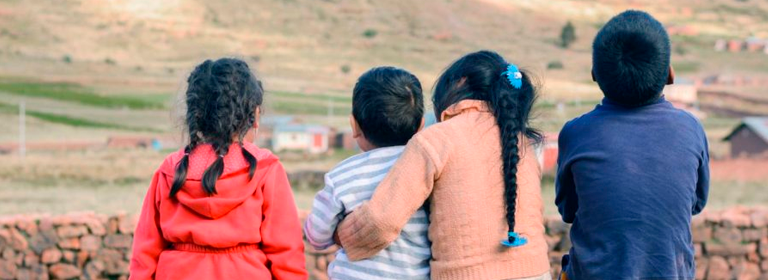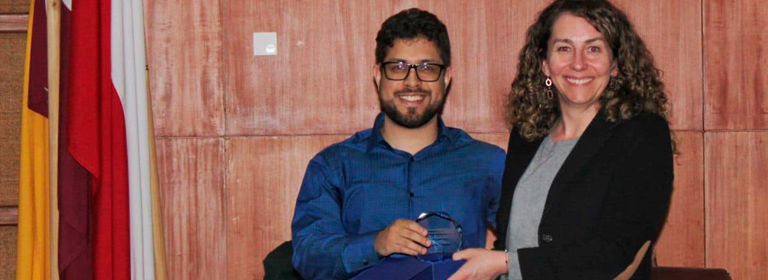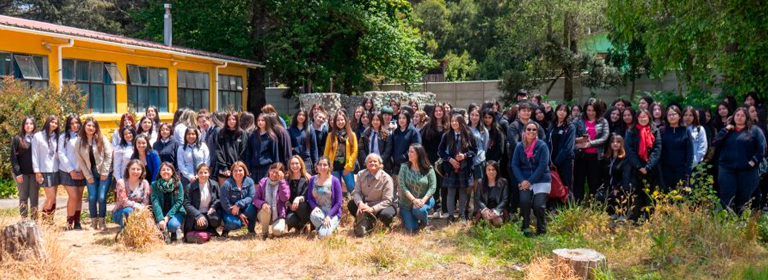The initiative, which will be financed by ANID, aims to develop adaptation strategies for rural communities in response to one of the planet’s key transformations.
 Rural communities and the biodiversity of their ecosystems will be the objects of study of a project to be carried out by the Universidad Católica del Maule, funded by the National Agency for Research and Development (ANID, in Spanish).
Rural communities and the biodiversity of their ecosystems will be the objects of study of a project to be carried out by the Universidad Católica del Maule, funded by the National Agency for Research and Development (ANID, in Spanish).
The initiative, entitled «Biodiversity from the coast to the mountains: A socio-environmental study of the (eco)-cultural practices of rural communities in a scenario of climate change», was awarded the prestigious ANID’s «Thematic Rings for Research in Science and Technology» call.
«It is a milestone for my career, the faculty and UCM. This is the second time that the university has been awarded a ‘Ring’ as the lead institution and that brings us great joy,» said the project director, Enrique Mundaca.
«We will be working for three years. The center of operations will be at the School of Agricultural Sciences of Los Niches and we will have guests from Spain, Zimbabwe, the United States, Azerbaijan, Romania, Australia, Hong Kong, Argentina and Austria,» stated the academic from the Faculty of Agricultural and Forestry Sciences of the campus, who holds a PhD in Ecology and Biodiversity.
Focused on investigating the consequences of climate change on the cultural practices of twelve localities located in Atacama, Maule, Biobío and Araucanía, the initiative, known as the «Anillos ATE 230028 Project», hopes to propose strategies for climate resilience. «We will combine the cultural and ecological aspects to comprehensively describe their economic activities and value the cultural heritage that these communities have on how they are linked to biodiversity. Often the knowledge of the communities about the surrounding diversity remains localized. If these communities disappear or relocate, this knowledge is lost, as it is not documented.» said Mariana Lazzaro-Salazar, PhD in Linguistics, alternate director of the initiative.
The also coordinator of the Social Sciences Nucleus of the Center for Research and Advanced Studies of Maule (CIEAM, in Spanish), belonging to UCM, is confident that the project will culminate with a plan of adaptation and mitigation strategies against climate change. This plan aims to empower communities in safeguarding their cultural heritage.
«We will have a ring focused on the biological aspect, where terrestrial and marine biologists will describe and characterize biodiversity. Another ring will address the economic aspect and then there is my ring, dedicated to discourse analysis and to studying the perceptions of rural communities with respect to the biodiversity that surrounds them,» she said.
The initiative, which will focus on Licantén,Villa Prat and Potrero Grande in Maule, will involve collaboration with researchers from the institution, the Universidad de Concepción and the Pontificia Universidad Católica de Chile.
Pride in the CIEAM
The project «Research ring on insect pests and climate change», which includes Hugo Benítez, Ph.D. in Evolutionary Biology and director of CIEAM, as an associate principal investigator, will also be extended for three years.
«It is both a source of pride and a great responsibility. CIEAM is reaching high levels of research and being awarded these high-level projects as principal institution and associated institution reflects the commitment of the university and our vice rector’s office, to seek the best research standards in the region and the country. In addition, both projects are completely related to our PhD in Ecosystem Health, which fills us with joy, as it allows us to contribute to advanced human capital by providing theses and cutting-edge research topics,» he said.
The initiative, also multidisciplinary in nature, will focus on the impacts of climate change on pest insects crucial for food security and public health. Margarita Correa, Ph.D. in Agricultural Sciences, also a member of CIEAM, will contribute to the research.













